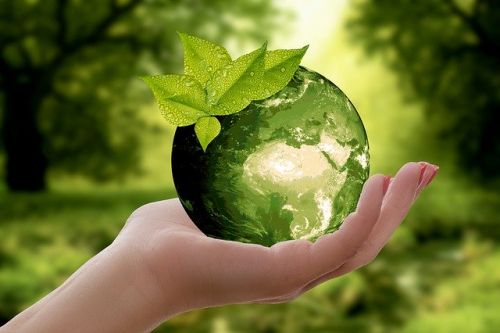
Five years have passed since the publication of Laudato Si’, Pope Francis’ encyclical on the care of the planet.
Here we discuss it with Luca Fiorani, professor at the universities of Lumsa, Marconi and Sophia; ENEA researcher; and head of EcoOne, the Focolare Movement’s ecological network.
In these times of pandemic, what lessons can come from Laudato Si’ and its paradigm of integral ecology?
I am thinking of how “everything is connected”. The pope, before the pandemic, made us savour its positive side, the wonderful relationship that exists between elements of nature, including people. The pandemic, on the other hand, has brought out the dark side of “everything is connected”, because human activity, which led to the destruction of natural habitats, and the virus’s leap of species from animal to man are linked.
What is the evangelical foundation of being committed to care for creation?
It is “Love thy neighbour as thyself.” One of the key concepts of Laudate is, “Listen to both the cry of the earth and the cry of the poor”. It is true that for the Gospel, nature has value in itself, but it is also true that caring for nature means ensuring a healthy planet for the most disadvantaged and for our children. It means reminding us of the “lower billion” – those billion people who are victims of a “chronic pandemic” due to 17 neglected tropical diseases.
Can the concept of integral ecology guide the future?
This is the fundamental concept of all Pope Francis’ teaching, which invites us to overcome the current socioeconomic system. Today we still live with the paradigm of the industrial revolution, which considers natural resources unlimited. Yet resources are indeed limited, and therefore we need to find a different model of development that also takes into account the needs of peoples forgotten by so-called “evolved” societies.
Laudate calls for a change of attitude. What does it mean to live the principles of integral ecology?
Integral ecology concerns not only the environment but all aspects of human life: society, economy and politics. Therefore each of us must try to change our lives, starting, for example, with consumer choices. Then we can choose leaders who are sensitive to caring for nature and campaign to apply pressure to disinvest from fossil fuels in favour of renewable energy.
In this special year of Laudato Si’ celebrations, how will the Focolare Movement participate?
The movement participates in initiatives of the Catholic Church and in events promoted by the Global Catholic Climate Movement, to which it adheres. In addition, it is organising a “New ways towards integral ecology” conference, to be held at Castel Gandolfo (RM) from 23–25 October.
Your latest book is entitled Francesco’s crazy dream: a small (scientific) manual of integral ecology. Why do you speak of a crazy dream?
Because it truly seems impossible to change the course of this planet towards a world where we all feel like brothers and sisters, and build more bridges than walls. But as Focolare’s founder Chiara Lubich said, “Only those who have great ideals make history!”



